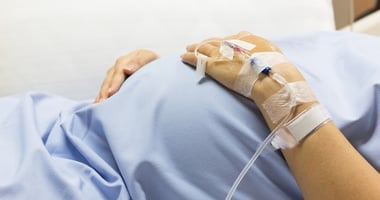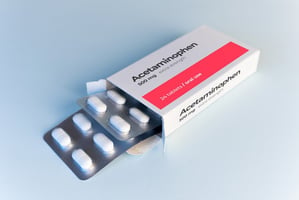A study of more than 626,000 births did not uncover an association between use of selective...
Exposure to Valproate in the Womb May Increase Risk of Autism, ADHD

Valproate, which is used to treat epilepsy, migraines, and bipolar disorder, has previously been linked to neural tube birth defects if taken during pregnancy. An article appearing in the January issue of Psychiatric News reports new findings that children exposed to valproate in the womb had an elevated risk of autism spectrum disorder (ASD) and attention-deficit/hyperactivity disorder (ADHD) compared with those who were not exposed to the medication in the womb.
The research was conducted by a team at Indiana University along with colleagues at Sweden’s Karolinska Institutet. The team used Swedish birth and medical registers to identify 14,614 children born between 1996 and 2011 to mothers with epilepsy. About 23% of the mothers used an anticonvulsant during the first trimester of pregnancy, with carbamazepine (9.7%), lamotrigine (6.8%), and valproate (4.8%) being the three most common.
After factoring in other variables that contribute to ASD or ADHD risk—including demographic characteristics, other medications used by the mothers, parental psychiatric history, and seizure severity—the investigators found that children who were exposed to valproate in the womb were 2.3 times as likely to be diagnosed with ASD and 1.74 times as likely to be diagnosed with ADHD as children who were not exposed to anticonvulsants. They also identified a small risk of ASD for carbamazepine exposure, but only in mothers who took this medication in combination with another anticonvulsant. There were no observable ASD or ADHD risks to children exposed to lamotrigine in the womb.
“While it’s important to identify evidence of risk, we should not overlook when we find evidence of relative safety,” lead author Kelsey Wiggs, a Ph.D. student at Indiana University’s Developmental Psychopathology Lab, told Psychiatric News. “And our data add to a growing body of evidence that lamotrigine is a good option for women with epilepsy who may become pregnant.”
Veerle Bergink, M.D., the director of Mount Sinai Hospital’s Women’s Mental Health Program, noted that while lamotrigine appears safer than other anticonvulsants, the medication may not always be the answer for women of reproductive age who have bipolar disorder due to its limited efficacy on mania symptoms.
The best guidance [for psychiatrists] we can give is to try and aim for monotherapy in pregnant women ... and keep them on the lowest dose possible during pregnancy,” Bergink said. “Importantly, ramp the dose back up after delivery, since the first few weeks after childbirth pose the greatest risk of symptom relapse in women with bipolar disorder.”
The study by Wiggs and colleagues was published in Neurology.
For related information on pregnancy and psychiatric illness, see the American Journal of Psychiatry article “Antidepressants, Pregnancy, and Autism: Setting the Record(s) Straight”.
(Image: iStock/damircudic)
Don't miss out! To learn about newly posted articles in Psychiatric News, please sign up here.






